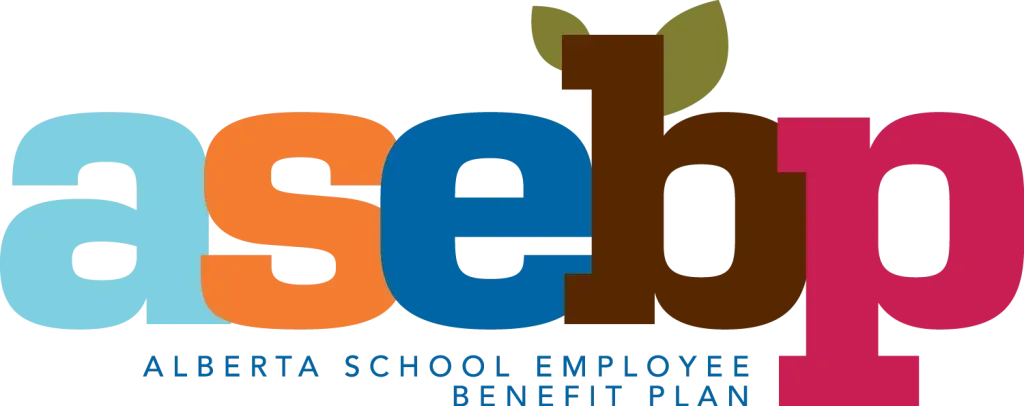Extended Disability Benefits
If you have a serious or prolonged illness that makes you unable to work more than 90 days, you may be eligible for Extended Disability Benefits (EDB). EDB is a total disability program, which means you must be completely unable to work due to your illness or injury. During the 90-day elimination period, an ASEBP adjudicator will contact you to gather information and guide you through the application process. Note your participation in EDB will need to be supported by medical documentation.
Your employer representative (ER) will notify ASEBP of your sick leave, and an ASEBP adjudicator will discuss the Sick Leave Support (SLS) program with you if applicable.
Eligibility
To be eligible for EDB, you must be under the age of 65 and:
- Have EDB coverage and meet the definition of total disability during the elimination period and beyond
- Have been working more than a 0.2 FTE at the time of your injury, or the minimum required by your employer, which could be greater than a 0.2 FTE
- Have continued your benefits during a leave of absence if you become ill or injured during that leave of absence
- Not have a pre-existing medical condition
You are encouraged to complete an application as soon as possible to avoid disruption of income, but we will accept applications up to 12 months following the end of your sick leave (the 91st day after the date of disability). Your application must include details from the date of disability through the 90-day elimination period.
- Please note:
- If you’re receiving EDB payments as you approach age 65, your coverage will end on the last day of the month following the month in which you reach age 65. (e.g., if you turn 65 on December 1, 2024, your disability coverage would end on January 31, 2025.)
- If you’re not receiving EDB payments as you approach age 65, your EDB coverage will end three months before you turn 65, due to the 90-day EDB elimination period.
If you’re an employee who will be living outside Canada because of an approved teacher exchange program or secondment position, you’re eligible for ASEBP EDB coverage for a maximum of 24 months. If you choose to return home within the 90-day elimination period, the regular provisions of the EDB plan will apply.
If you’re disabled due to an accident, you may be entitled to additional benefits through your Accidental Death & Dismemberment coverage.
Monthly Earnings
If you’re eligible for EDB, you qualify for income replacement at the level stated in your plan. You can find which plan you’re enrolled in by checking My ASEBP or the My ASEBP Mobile App.
Monthly earnings include salary, administrative allowances, pay while on vacation, isolation pay, retroactive salary and compensation for an acting assignment longer than three months. It doesn’t include signing bonuses, overtime, car allowances, expense allowances or reimbursements, salary earned while teaching night or summer school classes, early retirement incentives or pay in lieu of vacation.
ASEBP conducts an in-depth review of each EDB claim based on your individual health and financial situation. EDB plan requirements are based on your date of disability (i.e., year the claim was approved). In some cases, ASEBP will allow earnings from an employer and/or income from self-employment to reach 15 per cent of a covered member’s pre-disability income before applying an offset to the gross monthly disability benefit. This exception only applies to claims with a date of January 1, 2024, and later, and does not apply retroactively to past plan documents. If you are receiving EDB, contact your case manager about plan requirements governing your claim.
Benefits are paid monthly through direct deposit to the bank account you’ve identified on My ASEBP. You can find your EDB payment details, as well as T4As and other tax information, on My ASEBP under the Documents tab (Extended Disability Benefits and Tax Documents).
| Plan D | Plan E |
|---|---|
| 70% of your basic monthly earnings, to a maximum benefit of $23,333 per month. This amount is taxable because your employer pays 100% or a portion of the benefit premiums. | 662/3% of the first $2,500 of your basic monthly earnings plus 45% of any additional basic monthly earnings, to a maximum benefit of $15,542 per month. This amount is tax-free because you pay 100% of the benefit premiums. |
Premiums
Your benefit premiums for Extended Disability Benefits, Life Insurance, Accidental Death & Dismemberment and Extended Health Care, (Drugs, Other Medical Services and Supplies and Travel Emergencies)* are waived by ASEBP when you are approved for EDB. They are based on the coverage you have at the end of the 90-day elimination period. If you have Dental Care and Vision Care benefits, you may be responsible for covering premiums. Check with your employer to see who is responsible for paying premiums.
If you’re responsible for your Dental Care and Vision Care premium payments and have a Health Spending Account (HSA), you can submit the premiums you pay as an HSA expense.
*Special Notes:
- In rare cases, coverage for Extended Health Care, Dental Care and Vision Care are not guaranteed to last through your entire EDB leave.
- You must disclose any additional disability coverage that you have.
Rehabilitation Employment
Rehabilitation Employment is a temporary program designed for short-term transition back to work while on EDB. The program allows for modified hours, or alternate work or training during your rehabilitation and supports a progressive return to your previous level of employment.
While on EDB, if you become well enough to work a modified schedule, talk to your case manager about Rehabilitation Employment. Rehabilitation Employment needs to be pre-approved by ASEBP to ensure the work or training meets the program’s objectives. ASEBP will check in and review your progress periodically.
While performing Rehabilitation Employment your monthly EDB payment is reduced by 50 per cent of any salary or earnings you receive. (E.g. if you’re receiving $3,000/month while on EDB, when you’re participating under the Rehabilitation Employment program and earn $1,000/month from your employer, your EDB payment will be reduced by half of your earnings, or $500. This leaves you with a total EDB payment of $2,500/month.)
Please note: The combined total of your EDB payments and employer earnings cannot exceed 100% of your pre-disability income. In some cases, additional deductions may apply to ensure this limit is not surpassed.
Income from alternate work that is not part of an approved rehabilitation program will be offset at 100 per cent.
For more information about Rehabilitation Employment, contact your case manager.
If your Illness is Progressively Disabling
If you’re not able to perform all the regular duties of your job because of a progressively debilitating illness that’s expected to result in total disability, our Progressive Disability Program can provide income protection. You may still be able to continue working part time in a limited capacity. Your work hours reduce as your ability to work decreases.
Benefits into Retirement
If you are on EDB and decide to retire or you wish to transition into retirement directly from a leave, you may be eligible for ASEBP’s MyRetiree Plan benefits.

